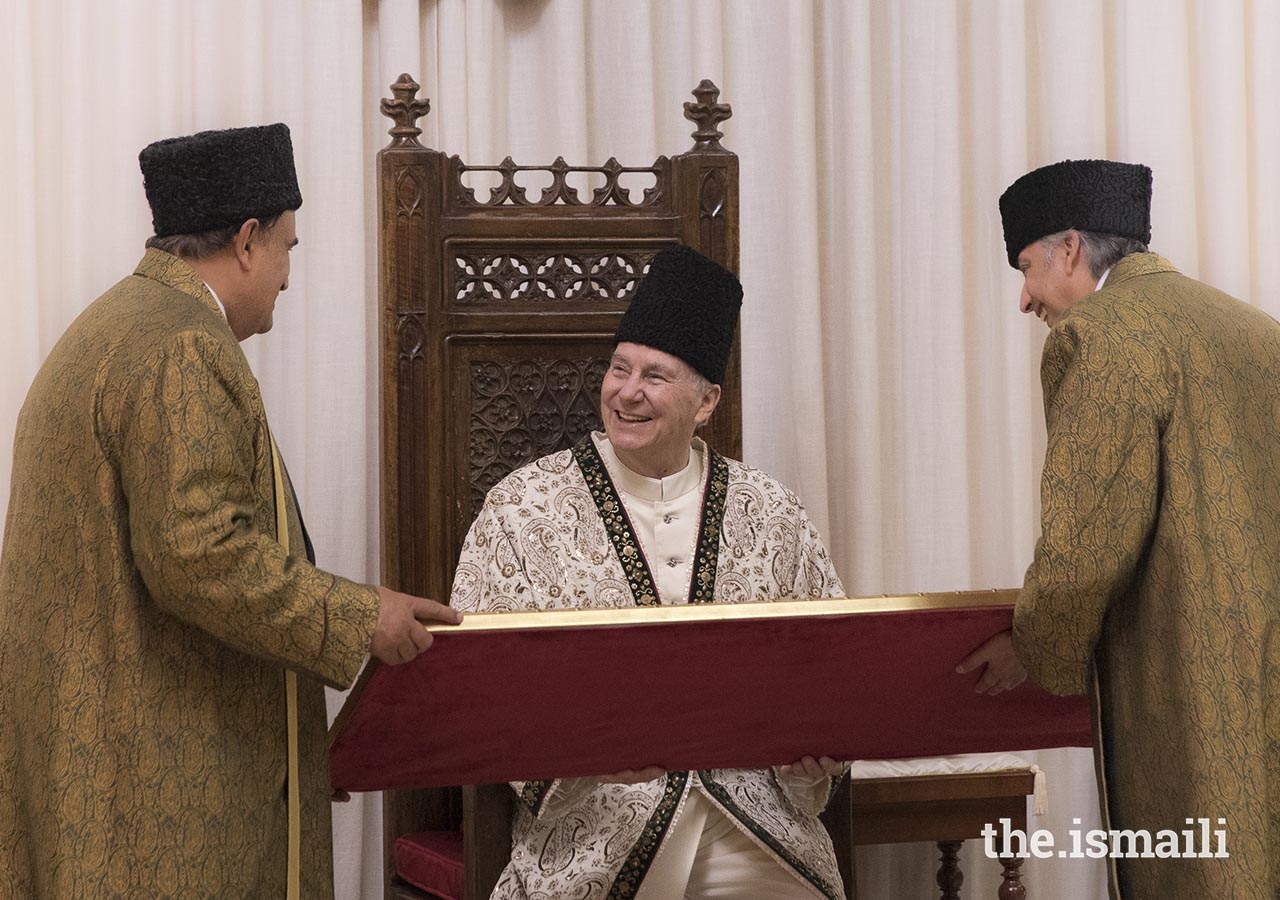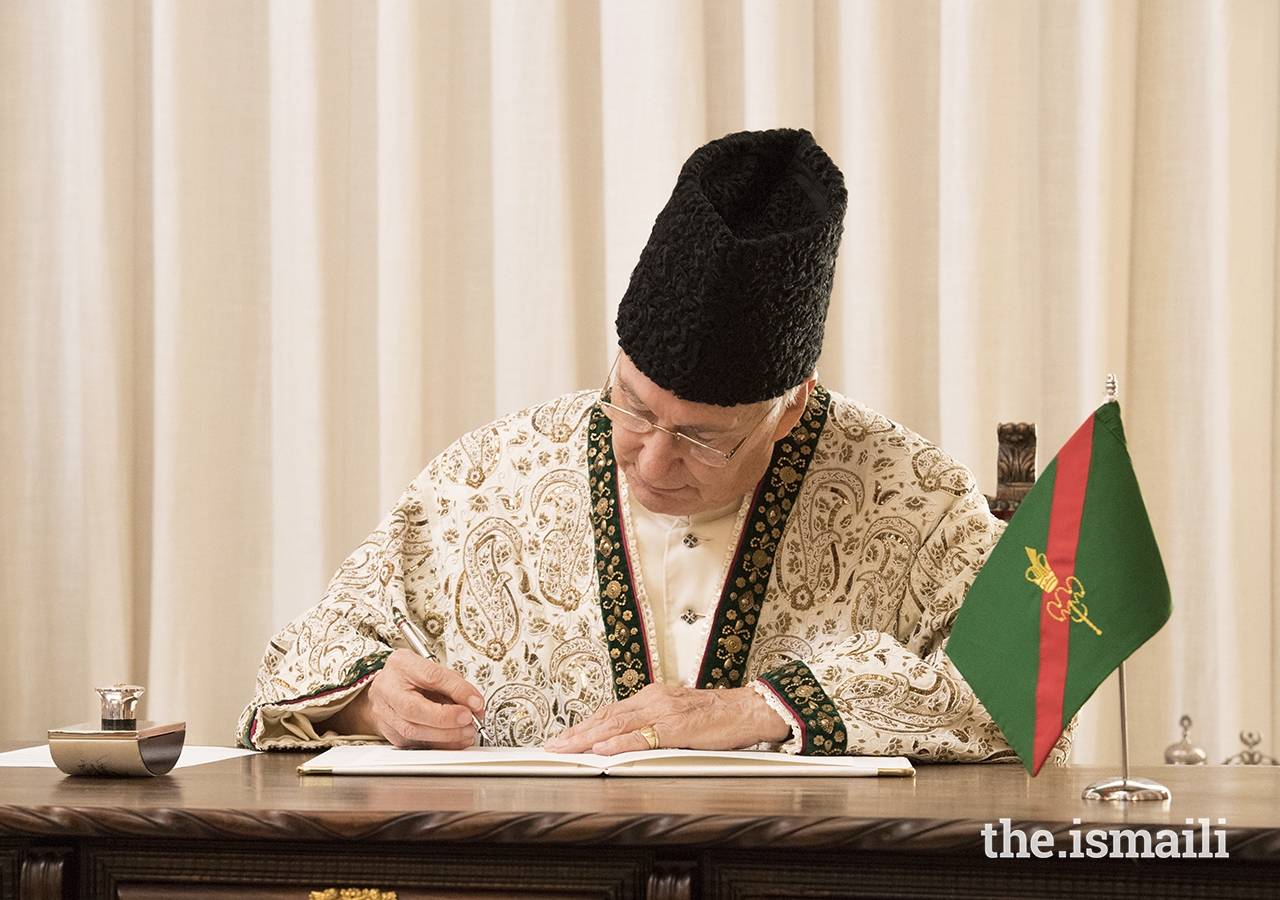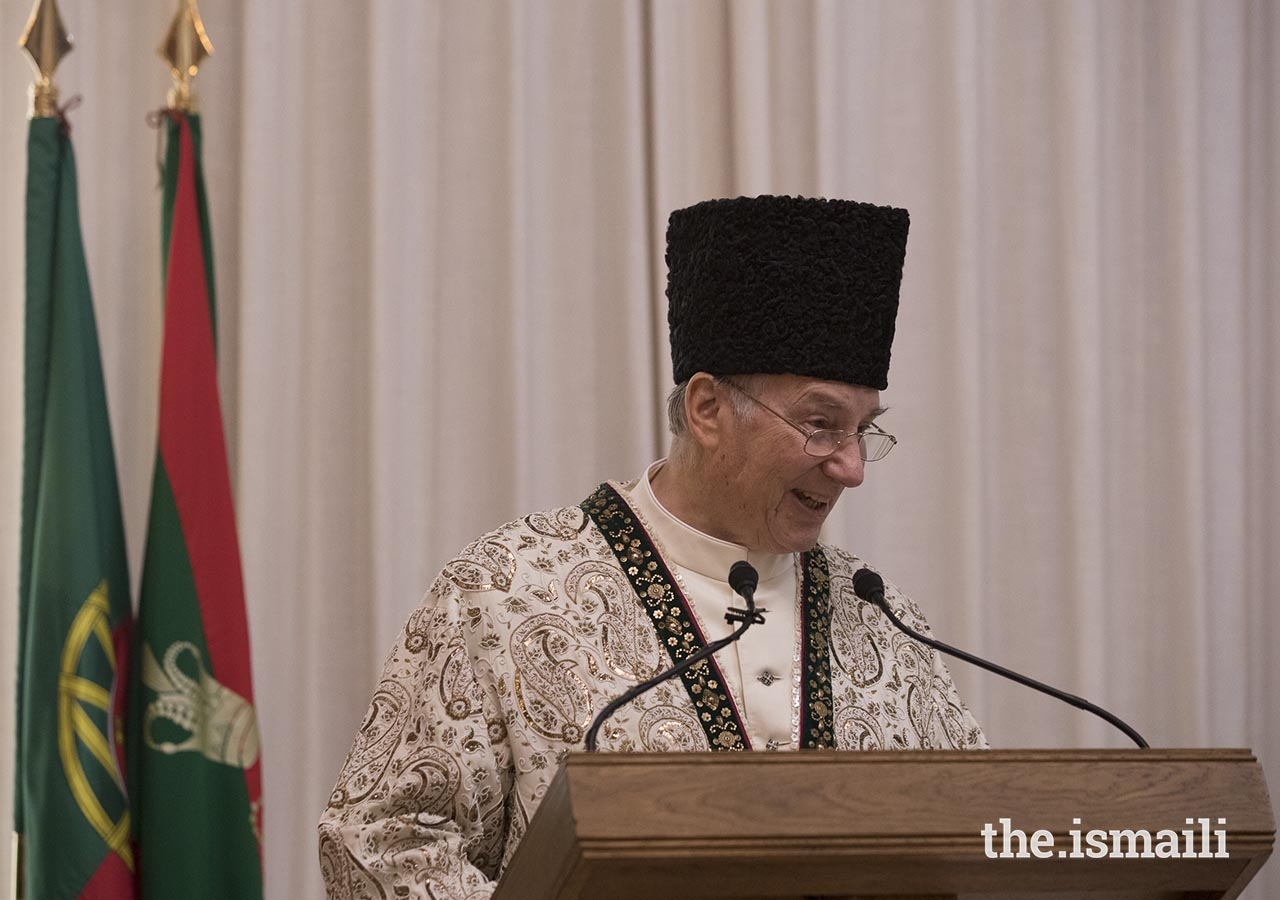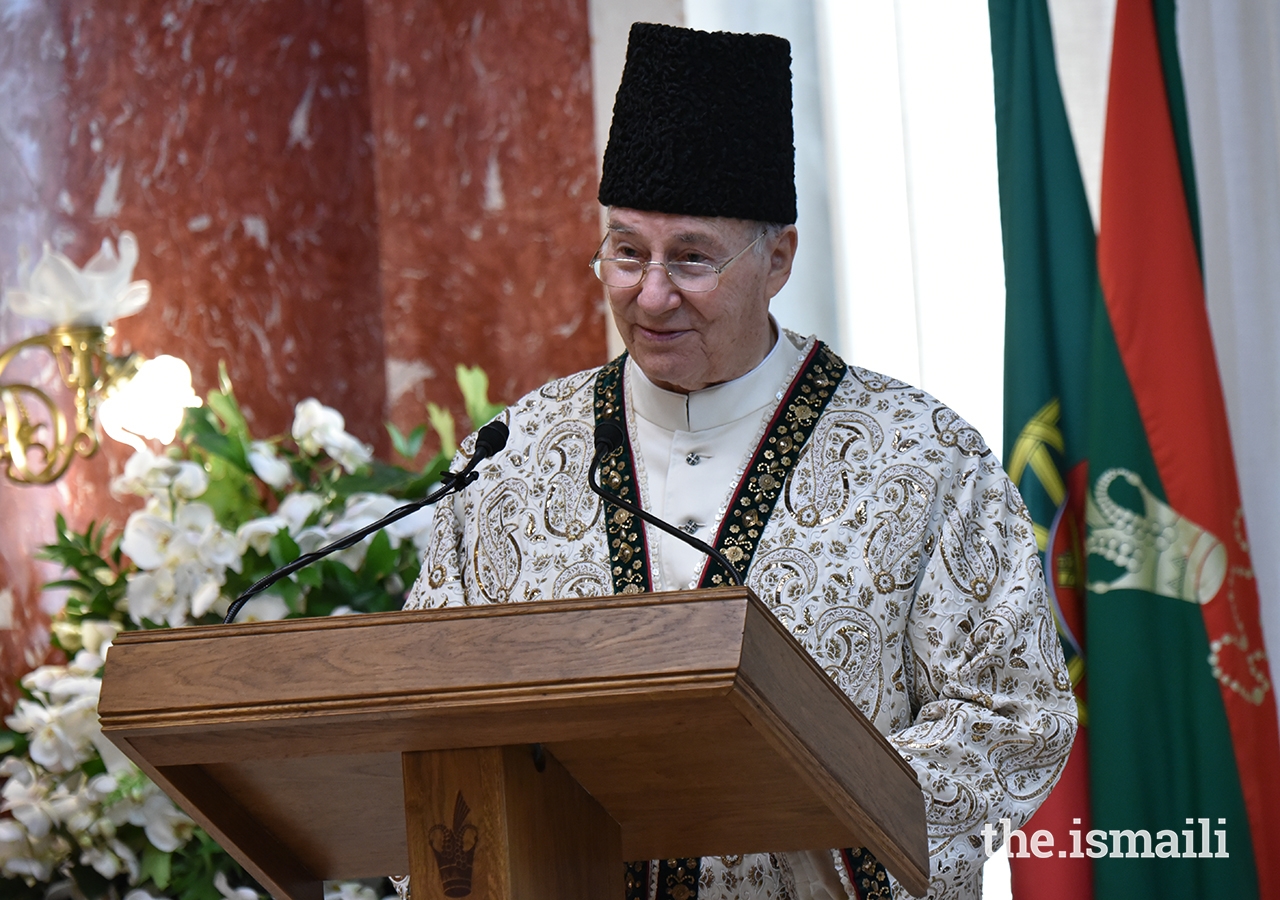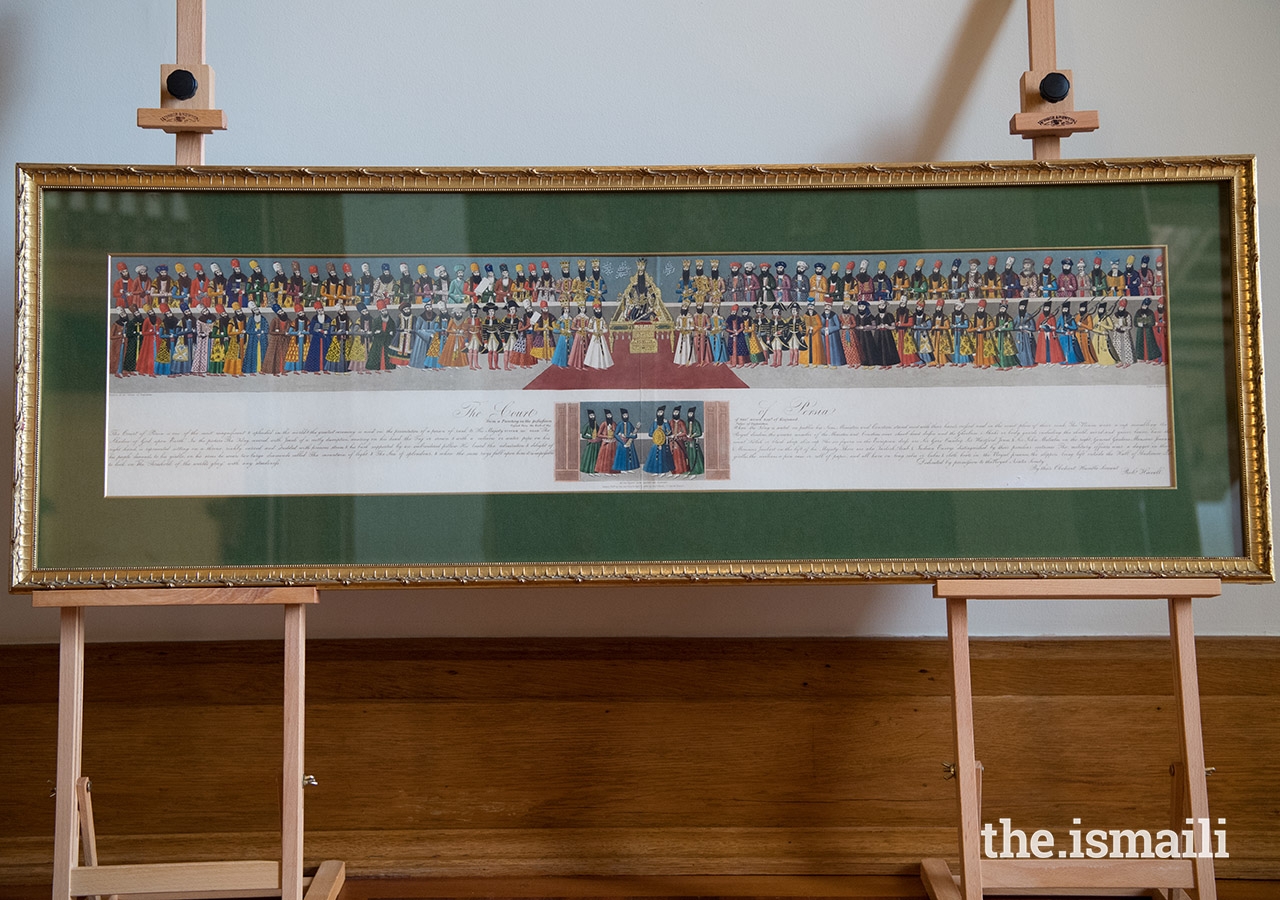The Seat of the Ismaili Imamat was established in Lisbon by Mawlana Hazar Imam at the invitation of the Portuguese government. This reflects the strong historical ties that have developed over generations. During the ceremony, Mawlana Hazar Imam remarked about the long-standing relationship.
“I am grateful for the government of Portugal for inviting me to establish the Seat within its territory. Over the years, the Portuguese have shown friendship, understanding, and a warm welcome to the Jamat as well as to the Imamat,” he said. “Ours is a relationship grounded in the shared values of religious freedom, tolerance, and pluralism. I believe, alongside strengthening the Imamat’s capacities, this will also enable our institutions to make a constructive and beneficial contribution to areas of mutual interest.”
This is the first time in the Ismaili Imamat’s 1,400-year history that a Seat has been established following a treaty with a sovereign non-Muslim country, making the designation a milestone moment for the global Ismaili community. Mawlana Hazar Imam highlighted the significance of the agreement on a global scale, as well as to the Jamat, during his remarks.
“Establishing a Seat in Portugal will also provide a platform for enhancing international relationships and taking them in new directions. At this time I wish to acknowledge the diligent work of many murids who over the years have contributed to the process that has resulted in this milestone agreement with Portugal,” Hazar Imam said. “It is my hope that the Jamat will share in my happiness over the accomplishment of this significant milestone which I believe will strengthen the Imamat’s capacity to fulfil its mandate of ensuring the Jamat’s safety, security, and quality of life.”
The notion of a Seat goes back to the time of Prophet Muhammad (peace be upon him and his family), whose residence in Medina served both as a seat and a mosque. Hazrat Ali, during his reign as the first Imam and the fourth Caliph of the nascent Muslim Ummah, established his Seat in Kufa, Iraq. In the Fatimid caliphal era, the Seat of the Ismaili Imamat moved from Raqqadah in Qayrawan (now Tunisia), first to al-Mahdiyya, and thereafter to al-Mansurriya and eventually to al-Qahira (now Cairo) in Egypt, a city founded by Mawlana Hazar Imam’s ancestor, our 14th Imam, Caliph al-Mu’izz.
In Ismaili tradition, the notion of the Seat of the Imamat corresponds to the Imam’s physical presence. Depending on the requirements of the Imamat and the Ismaili community, it is the Imam’s prerogative formally to designate a Seat in one or more locations.
Historically, including during the periods when they ruled over territories and peoples, Ismaili Imams have engaged in global diplomatic relations, with the Seat serving as the locus of such relations. In the modern era, the Imamat collaborates with national governments, regional and international institutions, and civil society organisations, to fulfil its mandate, which includes to guide the Jamat, and to improve the quality of life around the world.
The official designation of the Seat’s premises follows a series of significant developments in the relationship between Portugal and the Ismaili Imamat and builds on accords with the Republic of Portugal, the first of which was signed in 2005 and thereafter in 2008 and 2009.
In June 2015, Portugal welcomed the establishment of the Seat of the Ismaili Imamat in Lisbon. The Agreement signed on that occasion, represents a pioneering gesture that underlines the values of tolerance, cooperation, and mutual respect. It provides an enabling framework that will facilitate the global work of the Ismaili Imamat and marks the first such accord in the Imamat’s modern history and is a historic milestone. The premises at Rua Marquês de Fronteira, home of the Seat, provides a long-term base from which the Imamat will address complex international requirements and challenges.
In his address to the Portuguese Parliament on 10 July 2018, Mawlana Hazar Imam referred to the Seat as a “committed global institution” and spoke of the meaning and impact it will have, remarking “Lisbon, already a leading international crossroads city, will also now serve as a central connecting point for the global Ismaili community.” He reaffirmed the magnitude of the decision to establish a Seat in Portugal “taken after much reflection and consultation” saying that “it represents a true milestone moment in the long history of the Imamat.”
This milestone moment is also recognised by Portugal and its people. At the Parliamentary address yesterday, His Excellency Eduardo Ferro Rodrigues, the President of the Assembly of the Republic, referred to the Diamond Jubilee of Mawlana Hazar Imam as well as this historic occasion as “the high point, even a historic point of projection of the Ismaili community and Portugal.” He went on to say “that celebration, and that all of this is celebrated here, and the fact that the headquarters of the Ismaili Imamat is going to be established here – is historic, it gives us great pride, great pleasure, but also great responsibility.” His Excellency also shared his hope of what these events will bring for Portugal saying, “Your visit here and your establishment here, shows how we would like to project ourselves in the international community as a bridge-building country. We offer you our heartiest congratulations at this high point in history. We hope that your presence in Portugal will be a catalyst for energy and joint work for the creation of more fair, more open, and more pluralist societies.”
To mark the significance of the occasion, a gift — a meticulously detailed coloured print depicting the Qajar monarch Fath Ali Shah — was presented to Mawlana Hazar Imam on behalf of the global Jamat. The print, with its exquisite detailing and saturated colours, evokes the powerful impression of the monumental imperial enthronement scenes.
The coloured aquatint on paper depicts the Qajar ruler Fath Ali Shah enthroned with princes, noblemen, ministers, foreign ambassadors, and envoys. The print is one of a series of reduced copies of life-size wall paintings completed in 1812-13, evoking the splendour and glory of Fath Ali Shah’s reign at the Court of Persia in the late 18th and early 19th centuries.
The occasion was also marked by the launch of the official website of the Ismaili Imamat: https://Ismaili.Imamat.

